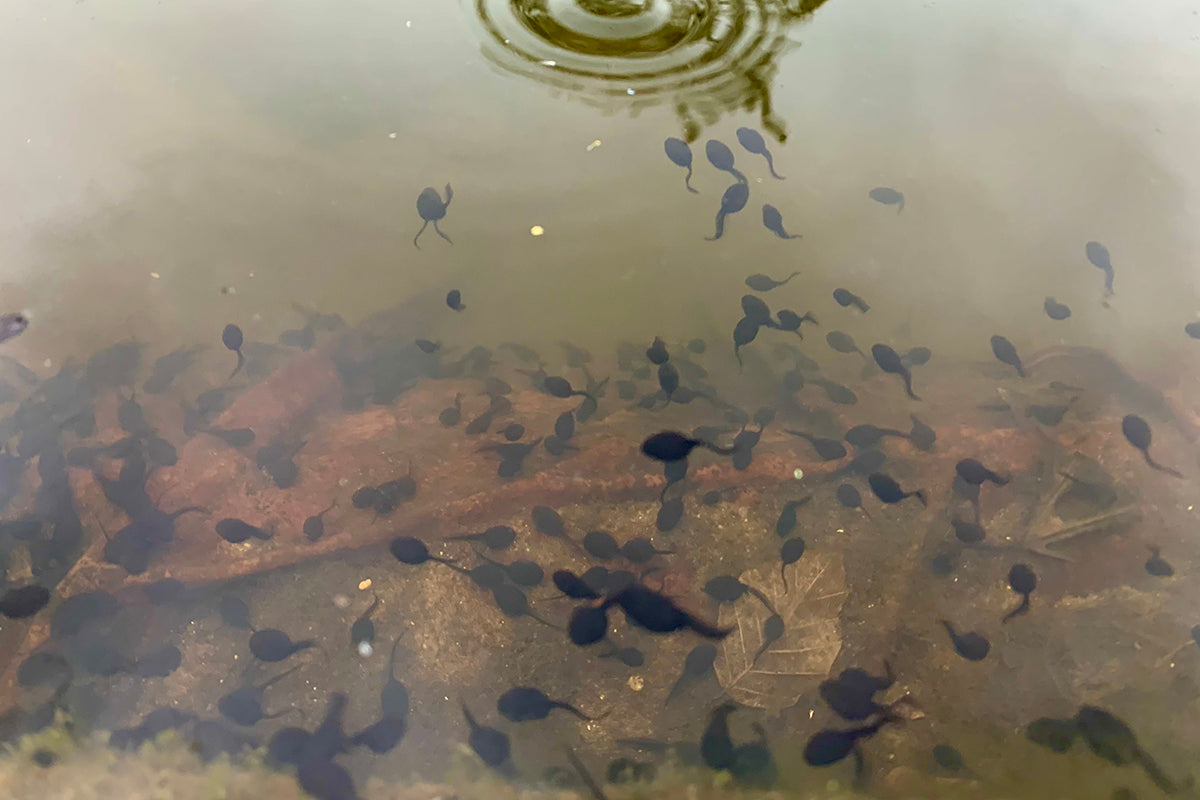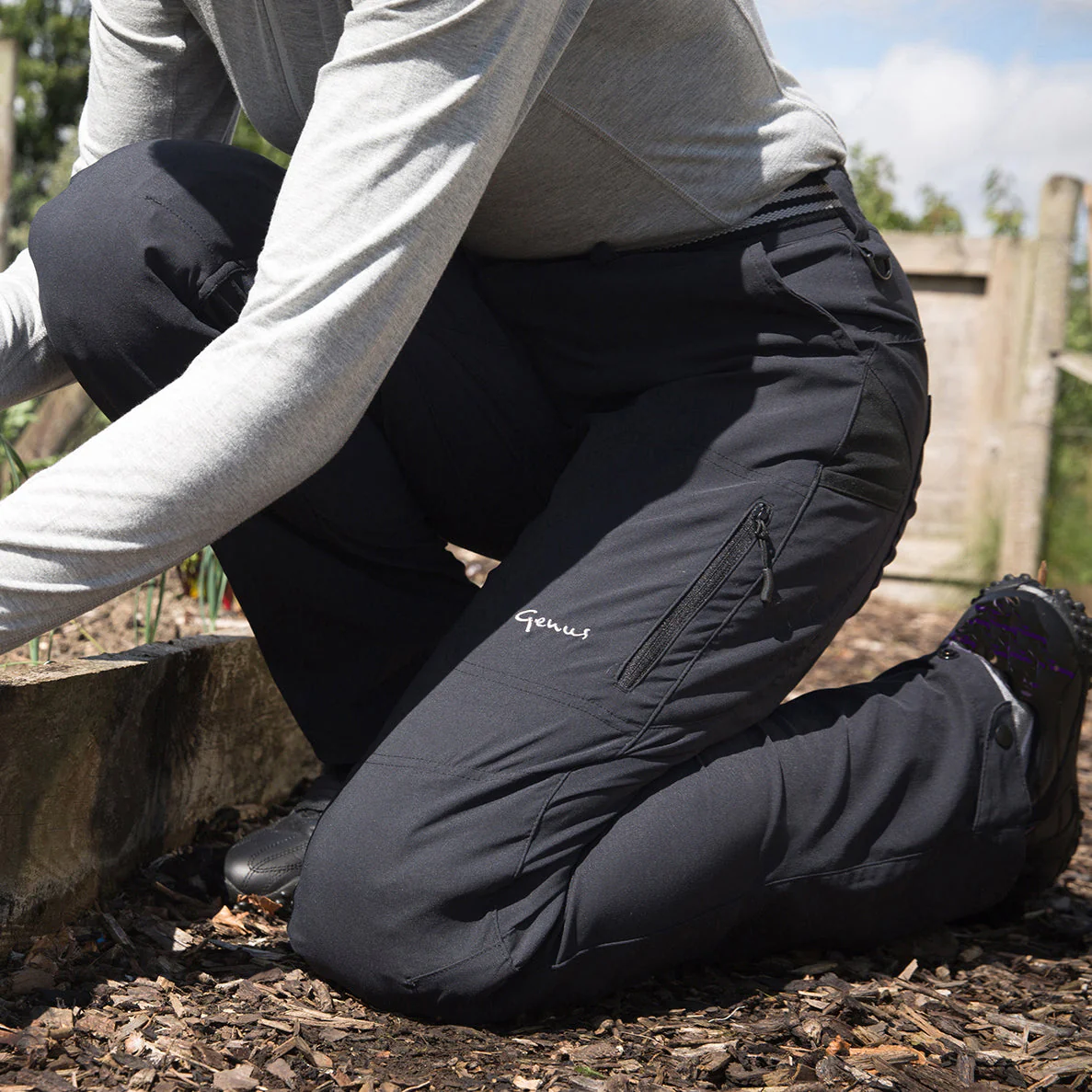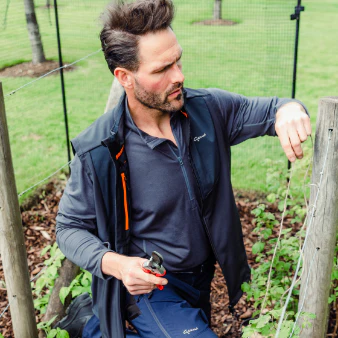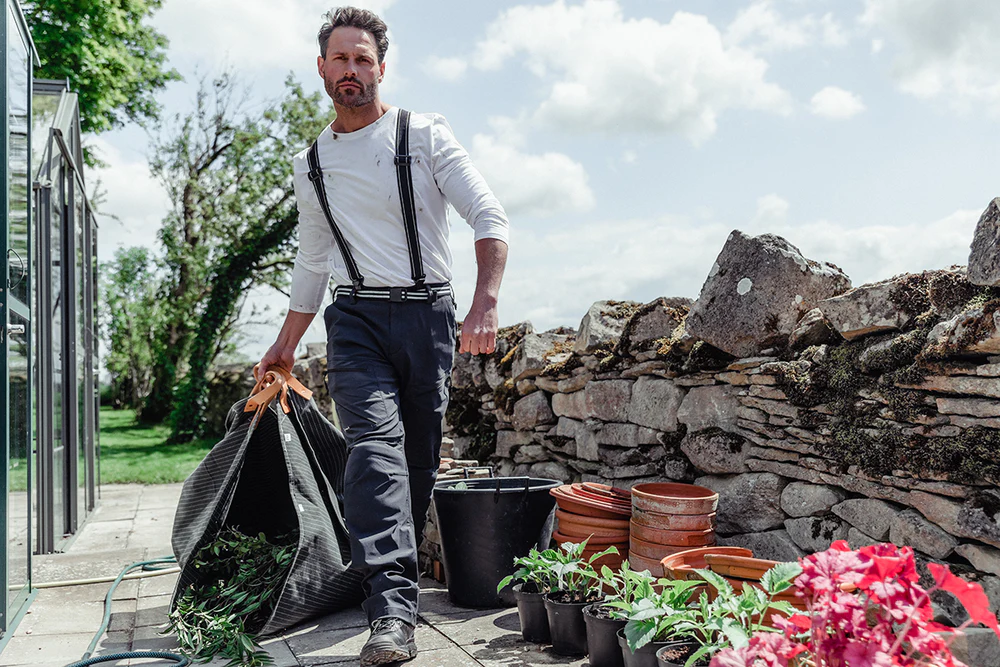News from the pond

Regular readers will have seen the sad news reported in our February blog where toads that make an annual pilgrimage from their winter quarters out of our dry stone walls, were dying in large numbers before being able to spawn. We consulted with a number of organisations dedicated to amphibian wellbeing and none of them were able to shed any light on the problem.
Two months on we’d given up hope of raising a brood of tadpoles for this year and just hoped that some adults would demonstrate a resistance to the disease and survive into next year. The most exciting news however is that, unbeknown to us, a number of the toads had successfully spawned and we’re now very happy to see the progeny, a host of tadpoles, swimming the margins of the pond enjoying a meal of filamentous algae of which there is plenty.
With yet more dead adults spotted in recent weeks we can only assume that much like salmon, they were able to reproduce, but the rigours of spawning, possibly combined with whatever was ailing them, were just too much for them to manage. Hopefully the tadpoles will not succumb to the same fate and in July we’ll start to see the tiny, but fully formed orphan toadlets making their way across the lawn and into the safety of the borders and the same stone walls that have kept their parents and predecessors safe for decades, possibly centuries.











